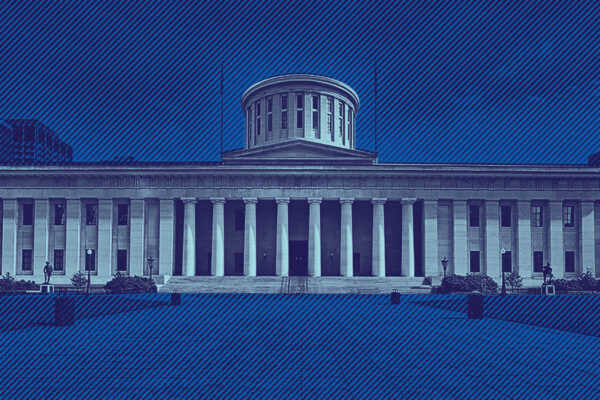Below is our Chief Lobbyist Gary Daniels’ proponent testimony on Senate Bill 242. This was delivered to the Senate Small Business & Economic Opportunity Committee on October 27, 2021.
To Chairman Rulli, Vice Chair Lang, Ranking Member Sykes, and members of the Senate Small Business & Economic Opportunity Committee, thank you for this opportunity to provide the following proponent testimony for Senate Bill 242.
The ACLU of Ohio supports SB 242 for a variety of reasons including those regarding poverty, race, and privacy.
A growing number of retail establishments, businesses and store chains have been, or are attempting to, move to a cashless model of doing in-person business. This movement is being encouraged, in large part, by credit card companies and the tech industry.
For many Americans, this development likely provides little or no problem or inconvenience. For many others, it does and will.
According to the Federal Reserve’s Report on the Economic Well-Being of U.S. Households in 2020 report, 83% of adults have at least one credit card. At a minimum, a cashless society leaves out 17% of us. But that does not tell the whole story.
Like so many other things, credit card ownership and what those cards are used for reveal notable differences when broken down by income and race. Collectively, White Americans own more credit cards, use them more often, are eligible for more credit cards because of credit scores and personal income, and receive higher spending limits than do Black and Hispanic/Latino Americans. These same general trends repeat themselves across poverty/income considerations. So, some of us are being left out more than others.
There is more story to tell. People of all kinds may choose, for any number of reasons, to use credit cards only for certain purchases, with only certain businesses, or only at certain times of the year. They, too, are largely left out of a cashless society, or at least cashless stores.
We can also anticipate a trend where, in at least some areas with concentrations of those who can only pay in cash, we see prices rise in neighborhood or local stores. If an owner or general manager knows they are the only store around for miles where diapers, baby formula, medicines, and so on are available for cash, would it surprise any of us if some of those stores raise prices?
Finally, some people choose not to use credit cards altogether, or not at certain stores, or not with certain purchases and products, for privacy reasons. Corporations spend untold amounts of money trying to identify everything they can about us individually and collectively as consumers. Some of us simply do not want our every purchase captured, stored, analyzed, cross-referenced, and that data sold again and again and again across the country and world, and at risk of misuse, abuse, and theft. Those people, too, are impacted by this bill.
Keep in mind, the regulation being discussed in SB 242 is not radical or burdensome. It is simply acknowledging not everyone can or wants to use a credit card 100% of the time and recognizing the various problems that arise when, of all things, a business decides it does not want to accept cash.
For these reasons and more, the ACLU of Ohio encourages the passage of Senate Bill 242.


